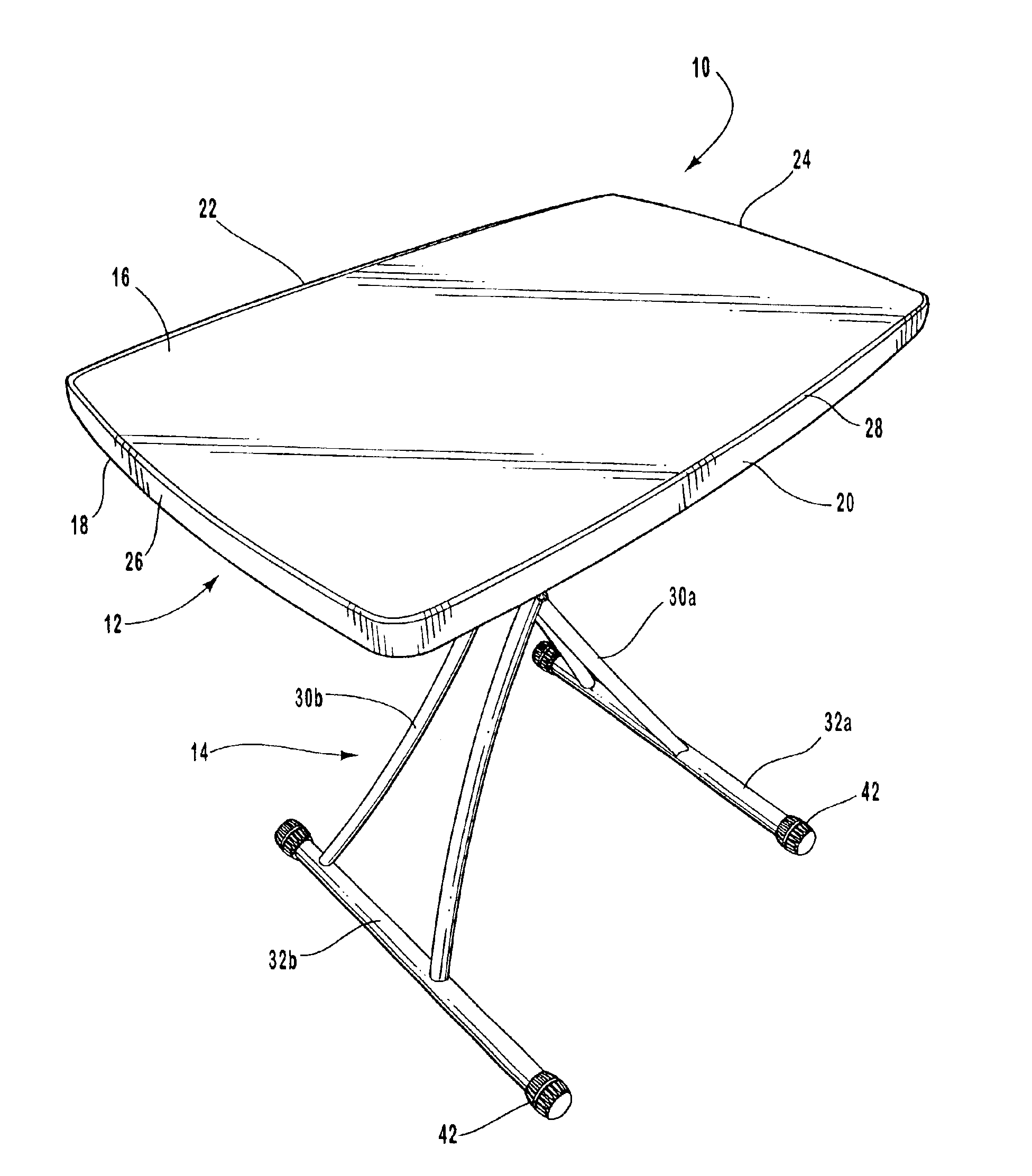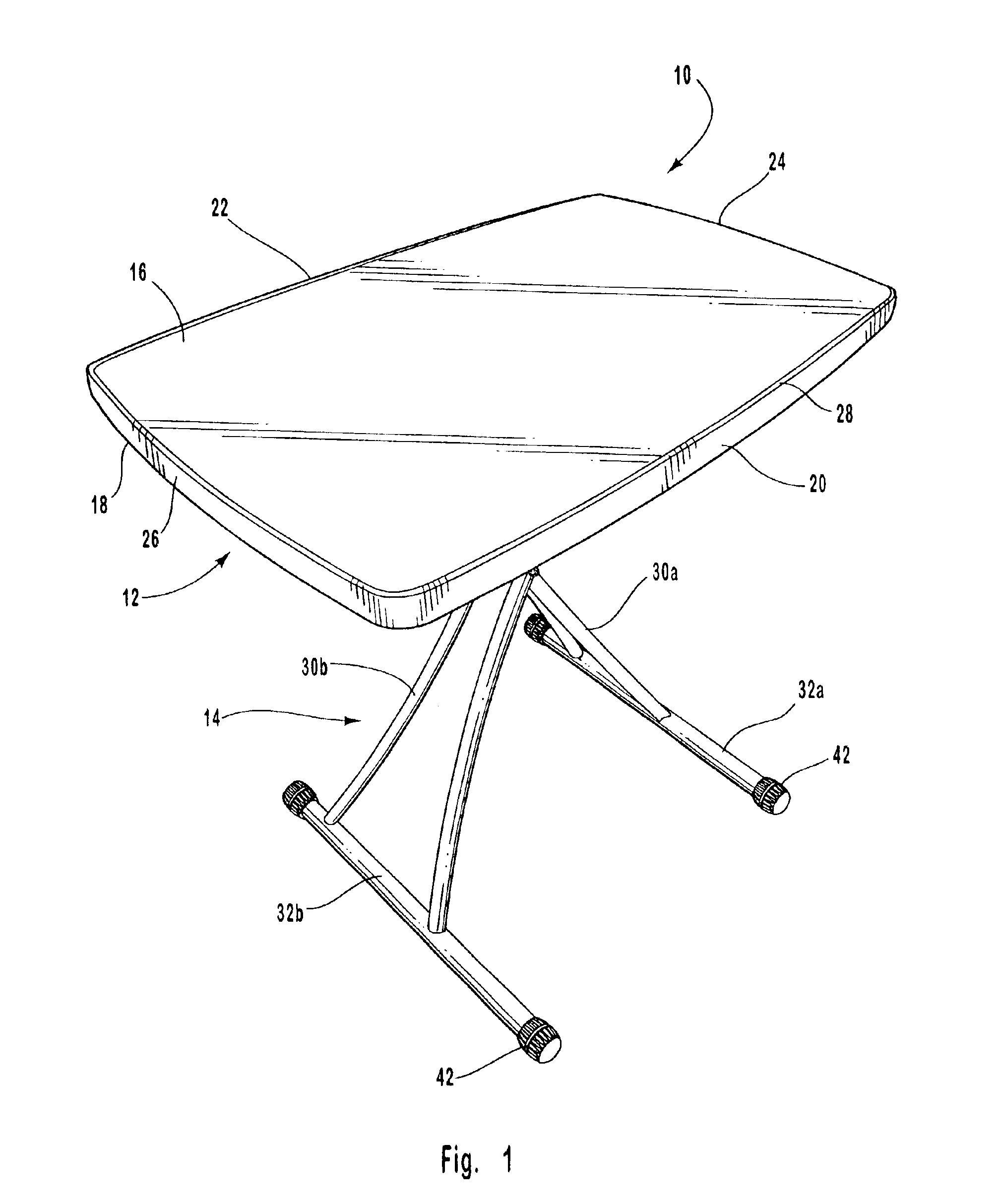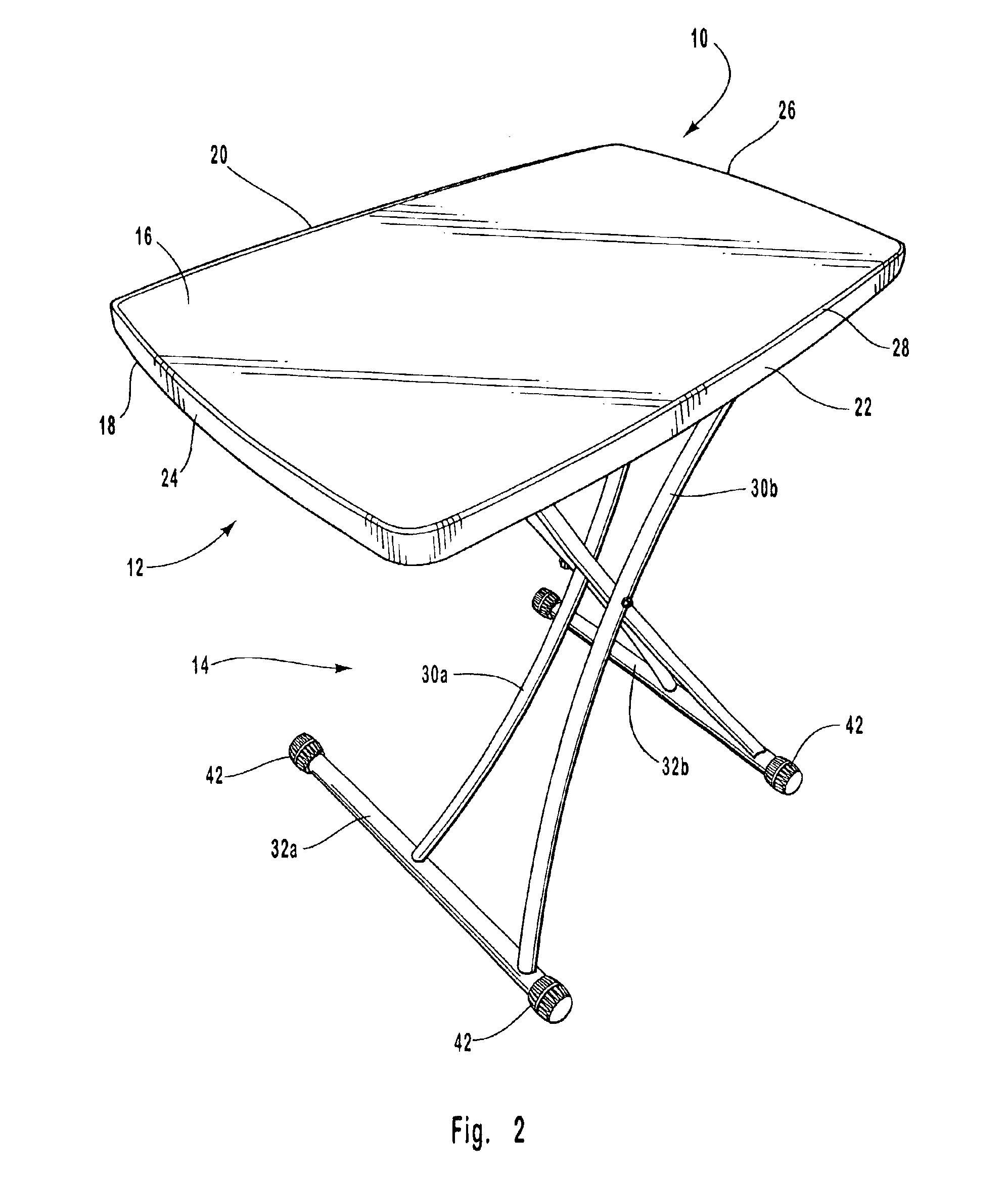Personal table
a table and personal technology, applied in the field of tables, can solve the problems of awkward or difficult to move the table, and the conventional table tops constructed from wood or metal are also relatively expensive, and achieve the effects of simple manufacturing, increased legroom for the user, and increased strength and rigidity of the table top
- Summary
- Abstract
- Description
- Claims
- Application Information
AI Technical Summary
Benefits of technology
Problems solved by technology
Method used
Image
Examples
Embodiment Construction
[0056]The present invention is directed towards a table and, in particular, to a table that is intended to be used by a single user at one time. The principles of the present invention, however, are not limited to a table intended for use by an individual user. It will be understood that, in light of the present disclosure, the table can be used by more than one user at any given time.
[0057]Additionally, to assist in the description of the table, words such as top, bottom, front, rear, right and left are used to describe the accompanying figures. It will be appreciated, however, that the table can be located in a variety of desired positions—including various angles, sideways and even upside down. A detailed description of the table now follows.
[0058]As seen in FIG. 1, an exemplary table 10 is shown. The table 10 is preferably a relatively small-sized table that is intended for use by a single person at one time. Advantageously, because the table 10 is sized and configured for perso...
PUM
 Login to View More
Login to View More Abstract
Description
Claims
Application Information
 Login to View More
Login to View More - R&D
- Intellectual Property
- Life Sciences
- Materials
- Tech Scout
- Unparalleled Data Quality
- Higher Quality Content
- 60% Fewer Hallucinations
Browse by: Latest US Patents, China's latest patents, Technical Efficacy Thesaurus, Application Domain, Technology Topic, Popular Technical Reports.
© 2025 PatSnap. All rights reserved.Legal|Privacy policy|Modern Slavery Act Transparency Statement|Sitemap|About US| Contact US: help@patsnap.com



